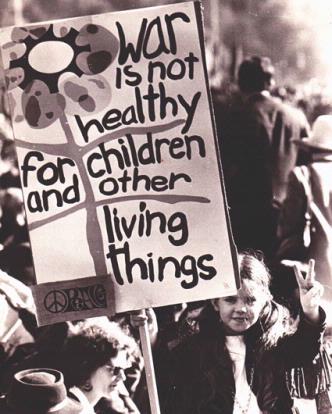
For those who lived in Boston in the late 1960s and early 1970s, the underground, free-form radio station WBCN-FM was the soundtrack of their lives. In the days before Facebook and Twitter, before the internet and GPS, and even before you could listen to rock music on FM radio, WBCN was the social media of its time.
Starting in March 1968, with makeshift studios in the dressing room of the legendary rock dance hall, the Boston Tea Party, the station became omnipresent in Boston, on transistor and car radios, and in stores and restaurants. ‘BCN connected its listeners, including a half million college students, to the newly emerging counterculture, including innovative forms of music, art, photography, writing, consciousness, and political activity, and to what was happening in their world.
A new, feature-length documentary film, The American Revolution, which is what WBCN called itself in those days, tells the story of WBCN and underground media, and how “a radio station, politics and rock and roll changed everything.” As a newscaster and announcer on the station at the age of 14, I witnessed firsthand the power that media had to entertain and uplift, to inform and educate, and to reflect and promote real changes. In turn, the era changed all of us who lived through it, making it an important and timely story.
The first great challenge in producing the film was locating archival material from the radio station and elsewhere. WBCN maintained no formal archives of its broadcasts from the era. Starting in 2005, in an unprecedented effort, we asked the public through the media and online to share their audio clips and broadcasts, along with photographs, film and video, graphics and art, memorabilia, and other material from the time along with their recollections. This was long before the term “crowd sourcing” had been used, and we called the effort “open source,” the first such “open source documentary” to be made. Hundreds of people responded, and to date more than 100,000 items have been shared with us for use in the project, some not heard or seen in nearly a half century, with more material coming in daily through our website (www.TheAmericanRevolution.fm).
In addition to its radically different approach to music, WBCN’s news department pioneered a new way of covering news involving reporting, commentary, music and even comedy to provide an alternative perspective. It was powerful and many considered it the most trustworthy source of information at the time, with its legacy today being the work of John Stewart and Stephen Colbert. It wasn’t surprising that the FBI was a frequent listener and visitor to the station, keenly understanding the central role WBCN played in covering the increasingly radical opposition to the draft, the war and to the policies and crimes of Richard Nixon, whose administration was a primary focus of WBCN during these years.
Later, through a Kickstarter campaign, we raised more than $115,000 toward the production of the non-profit film. The efforts to engage the public in helping to tell this previously untold story of an important part of America’s social, political and cultural history, led American University’s Center for Social Media to call the project “a revolution in documentary filmmaking.”
In addition to the film, we are working to preserve and make accessible the archival material we have collected by restoring it and cataloging it online using geo-mapping, which will allow anyone interested, including students, visitors to Boston and others, to see and hear the material as organized by location. An exhibit and book are also being developed to accompany the release of the film, and you can listen to the “Sounds of The American Revolution” online.
You can support the non-profit project with a tax-deductible donation to our Kickstarter campaign. Donations of $104 or more will receive an invitation to a special donor appreciation night in December featuring leading musical artists from the era. The film project has been supported by a wide array of listeners and organizations including Mass Humanities, whose vision and early support for the project was critical.
The American Revolution is a landmark look at the late 60s and early 70s, a story of time that would forever transform the country and shape the values and beliefs of a generation with regard to virtually all aspects of American life. It will serve as an inspiration to those seeking to use media, politics and music to create social change today. We changed the world one time. We can do it again.

Photos, top to bottom:
Bill Lichtenstein, 1973, age 16 on air at WBCN. Photo by Don Sanford.
Photo of girl at demonstration by Eric Engstrom


